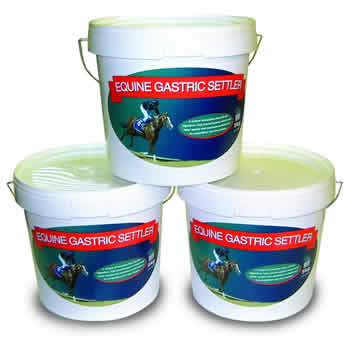 |
Feeding
Older Horses
Have
you got an older horse or pony that needs some extra care
when autumn and winter come along? Then pick up some handy
feeding tips from Hickstead Horse Feeds nutritionist Christine
Smy from the article below.
Many
elderly horses do well during the summer months, particularly
when there is plenty of 'Dr Green' to eat, with older horses
with loose or missing teeth managing to chew and digest the
young grass shoots relatively easily. Grass is an excellent
source of digestible fibre, and the general 'walking about'
exercise in the field will keep arthritis at bay.
But,
later in the summer, problems may start to appear. Once the
grass has flowered and seeded, it becomes tough and lignified,
and the digestibility and nutritional value lowers on a daily
basis.
|
Older
horses often have difficulty in digesting specific nutrients such
as protein and phosphorus, and require a higher level of energy
to maintain body weight. Spring and early summer grass will usually
provide a balanced diet, but older grass will not, so it's at this
time that supplementary feeding should be considered to ensure a
balanced diet.
When
choosing a concentrate to feed to an older horse, there are several
points to be taken into consideration.
"
Teeth - a mouth of loose or missing teeth cannot chew effectively.
Many concentrates designed specifically for veterans are mixes;
however, if the horse can't chew effectively, and flakes of grain
are swallowed whole, stress will be placed on the gut resulting
in potential problems, particularly colic. For these horses, forget
buying expensive mixes - instead, feed Hickstead Hi Fibre Cubes,
a balanced cube containing 19% fibre which can be soaked with warm
water or sugar beet water for 20 minutes. The resulting mash can
be digested efficiently without any stress to the gut.
" Droppings - keep an eye on the droppings as these can tell
you how the feed has been digested. Strong or sour smelling droppings
will indicate poor digestion, as will droppings containing cereal
grains or long fibre from forage or chaff. If there is a problem
in this department, it may be time to convert to Hickstead Hi Fibre
Cubes, which contain super-fibres, increasing digestibility and,
as the fibres are ground, gut irritation will be avoided, making
sure nothing is wasted. These cubes can replace all forages including
chaffs.
" Weight - older horses can lose weight through the latter
part of the summer. Many have problems regulating their temperatures,
particularly during hot and humid weather, and heat stress will
suppress appetite. It's important the feed is palatable and nutritious.
The addition of Hickstead Condition Cubes will be of benefit, and
the cubes can be soaked with water and fed alone, or added to Hi
Fibre Cubes to ensure maximum digestibility. Added soya provides
an exceptional source of protein for muscle maintenance and the
high oil content supports good body and coat condition. Hickstead
Condition Cubes are an excellent all round ration, ideal for older
horses.
" General care of older horses during hot weather is important.
Provision of shelter and shade from the sun and flies is more imperative
than with younger horses and older horses often tend to be subjected
to bullying from other horses, with the result of lower feed intake.
.
|







